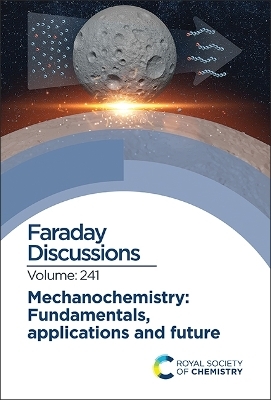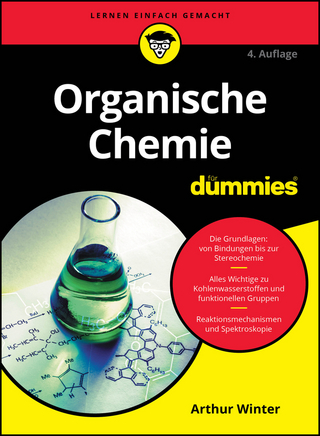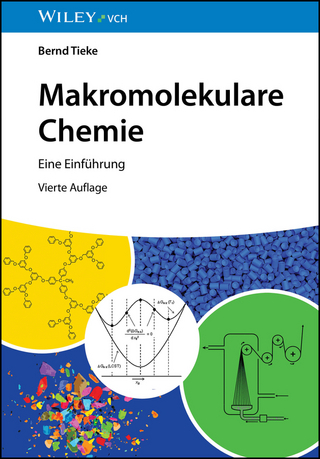
Mechanochemistry: Fundamentals, Applications and Future
Faraday Discussion 241
Seiten
2023
Royal Society of Chemistry (Verlag)
978-1-83916-697-6 (ISBN)
Royal Society of Chemistry (Verlag)
978-1-83916-697-6 (ISBN)
This Faraday Discussion volume brings together internationally leading researchers to explore and exchange ideas on the physical and chemical principles underlying mechanochemical phenomena.
In recent years, mechanochemistry has become a mainstream technique for chemical synthesis, spanning supramolecular materials, inorganic (main group, coordination complexes, MOFs) and organic synthesis, pharmaceutical screening, materials development, sustainable chemistry and reaction discovery, as well as its more traditional applications in alloying etc. The current time is also exciting in terms of advances in the fundamental understanding of kinetics and some of the first reaction models specific to mechanochemistry are being discovered. Mechanochemistry is far broader than synthesis alone. It is also fundamental to understanding shear processes at the molecular level and is being harnessed to accomplish new chemistry through the controlled mechanical scission of polymers. As such, mechanochemistry brings many disciplines together in an effort to provide greater understanding of fundamental molecular processes for large scale, sustainable manufacturing as well as new science.
This Faraday Discussion volume brings together internationally-leading researchers to explore and exchange ideas on the physical and chemical principles underlying mechanochemical phenomena.
In this volume the topics covered are organised into the following themes:
Advances in synthesis
Shear processes and polymer mechanochemistry
Kinetics and basic understanding
Scale up and industrial implementation
In recent years, mechanochemistry has become a mainstream technique for chemical synthesis, spanning supramolecular materials, inorganic (main group, coordination complexes, MOFs) and organic synthesis, pharmaceutical screening, materials development, sustainable chemistry and reaction discovery, as well as its more traditional applications in alloying etc. The current time is also exciting in terms of advances in the fundamental understanding of kinetics and some of the first reaction models specific to mechanochemistry are being discovered. Mechanochemistry is far broader than synthesis alone. It is also fundamental to understanding shear processes at the molecular level and is being harnessed to accomplish new chemistry through the controlled mechanical scission of polymers. As such, mechanochemistry brings many disciplines together in an effort to provide greater understanding of fundamental molecular processes for large scale, sustainable manufacturing as well as new science.
This Faraday Discussion volume brings together internationally-leading researchers to explore and exchange ideas on the physical and chemical principles underlying mechanochemical phenomena.
In this volume the topics covered are organised into the following themes:
Advances in synthesis
Shear processes and polymer mechanochemistry
Kinetics and basic understanding
Scale up and industrial implementation
Faraday Discussions documents a long-established series of Faraday Discussion meetings which provide a unique international forum for the exchange of views and newly acquired results in developing areas of physical chemistry, biophysical chemistry and chemical physics. The papers presented are published in the Faraday Discussion volume together with a record of the discussion contributions made at the meeting. Faraday Discussions therefore provide an important record of current international knowledge and views in the field concerned. The latest (2020) impact factor of Faraday Discussions is 4.008.
Advances in synthesis;Shear processes and polymer mechanochemistry;Kinetics and basic understanding;Scale up and industrial implementation
| Erscheinungsdatum | 14.02.2023 |
|---|---|
| Reihe/Serie | Faraday Discussions ; Volume 241 |
| Mitarbeit |
Sonstige Mitarbeit: Royal Society of Chemistry |
| Verlagsort | Cambridge |
| Sprache | englisch |
| Maße | 156 x 234 mm |
| Gewicht | 1920 g |
| Themenwelt | Naturwissenschaften ► Chemie ► Organische Chemie |
| Naturwissenschaften ► Chemie ► Technische Chemie | |
| Technik | |
| ISBN-10 | 1-83916-697-5 / 1839166975 |
| ISBN-13 | 978-1-83916-697-6 / 9781839166976 |
| Zustand | Neuware |
| Haben Sie eine Frage zum Produkt? |
Mehr entdecken
aus dem Bereich
aus dem Bereich


